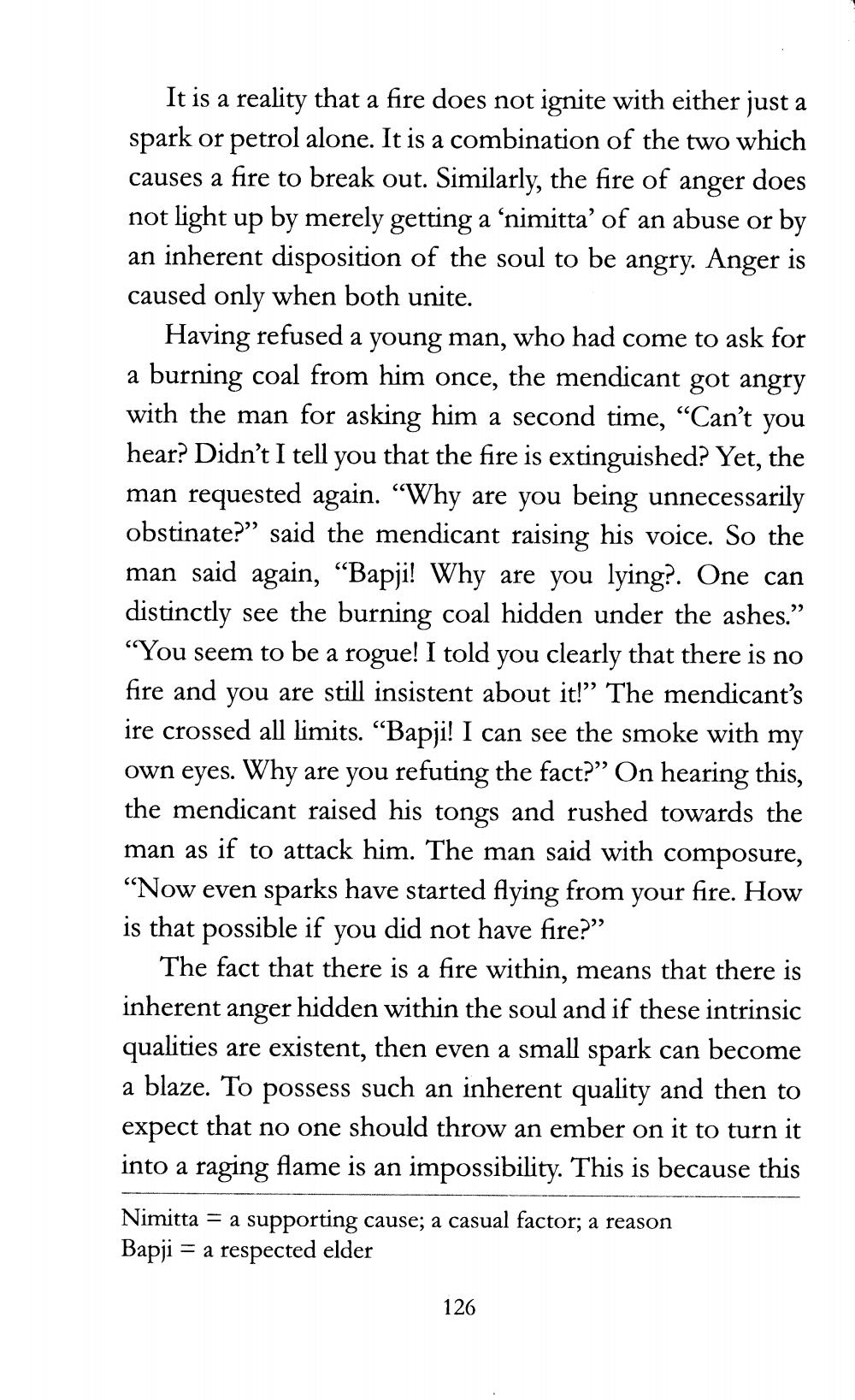________________
It is a reality that a fire does not ignite with either just a spark or petrol alone. It is a combination of the two which causes a fire to break out. Similarly, the fire of anger does not light up by merely getting a 'nimitta' of an abuse or by an inherent disposition of the soul to be angry. Anger is caused only when both unite.
Having refused a young man, who had come to ask for a burning coal from him once, the mendicant got angry with the man for asking him a second time, "Can't you hear? Didn't I tell you that the fire is extinguished? Yet, the man requested again. "Why are you being unnecessarily obstinate?" said the mendicant raising his voice. So the man said again, "Bapji! Why are you lying?. One can distinctly see the burning coal hidden under the ashes." "You seem to be a rogue! I told you clearly that there is no fire and you are still insistent about it!" The mendicant's ire crossed all limits. "Bapji! I can see the smoke with my own eyes. Why are you refuting the fact?" On hearing this, the mendicant raised his tongs and rushed towards the man as if to attack him. The man said with composure, "Now even sparks have started flying from your fire. How is that possible if you did not have fire?"
The fact that there is a fire within, means that there is inherent anger hidden within the soul and if these intrinsic qualities are existent, then even a small spark can become a blaze. To possess such an inherent quality and then to expect that no one should throw an ember on it to turn it into a raging flame is an impossibility. This is because this
Nimitta = a supporting cause; a casual factor; a reason = a respected elder
Bapji
126




